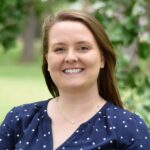It was fifth grade and we were in the middle of one of those infamous Chicago winters. I was wearing an ugly turtleneck sweater that I was super self-conscious about. I felt even more self-conscious about it while I was getting sick in the hallway of my elementary school. To this day, my heart goes out to the janitor who had to clean my half-digested breakfast from the school’s carpeted hallways.
Needless to say, I went home sick, but I wouldn’t understand what I missed out on that day until my mid-twenties.
 In November of 2019, I was diagnosed with Polycystic Ovarian Syndrome (PCOS), and while I’ve learned that this is an increasingly common diagnosis among young women across the globe, I struggled to understand why it took me until I was 25 to notice that something was wrong.
In November of 2019, I was diagnosed with Polycystic Ovarian Syndrome (PCOS), and while I’ve learned that this is an increasingly common diagnosis among young women across the globe, I struggled to understand why it took me until I was 25 to notice that something was wrong.
I’ve had irregular periods all my life, and that was always normal for me. When doctors asked about the irregularities, I would tell them that I had never gotten a period consecutive months in a row, and it was always shrugged off as “not a big deal” or “that’s just your body”.
What I wish I could tell my 10-year-old self is, that it is a very big deal, and this was an extremely early and telling sign of PCOS. PCOS manifests differently in everyone. It affects the hormones and traditionally increases male hormone (androgen) levels (my testosterone levels were twice as high as they should have been, while my androgen levels were 4x higher than normal). And let me tell you, I felt that.
By 25, I couldn’t control my emotions, anxiety was at an all-time high, and I felt, well, depressed. And the more I thought about it, the more I realized how long I’d felt “off”. It’s like I went from a happy-go-lucky kid to an uncertain, sad, angry teenager who wasn’t having any fun; and then morphed into an uncertain, sad, angry adult who wasn’t having any fun…
Going home sick in my ugly turtleneck sweater meant that my 10-year-old self would miss the sex education field trip. The one where they talk about puberty, periods, mood fluctuations, and how to take care of your body while you’re going through these changes. The one where I would have learned that having periods every month means you’re healthy and your body is working the way it should. More importantly, I would have learned that not having your period every month is cause for concern.
The good news is, I have it under control. My Endocrinologist and I have a treatment plan, and I already feel better. The frustrating part is, this could have been prevented if myself or my parents had the correct information about reproductive health. I’m thankful that I found a specialist who knew exactly how to help me, but I’m sad that my body has been out of whack for nearly 20 years.
For more information about PCOS, follow this link.
For more information about Candor Health Education’s puberty programs, follow this link.
 Written by: Laura Benn-Social Media Coordinator, Candor Health Education
Written by: Laura Benn-Social Media Coordinator, Candor Health Education
